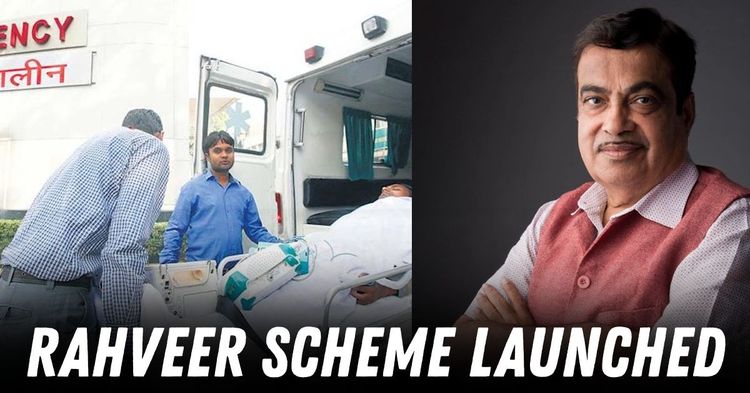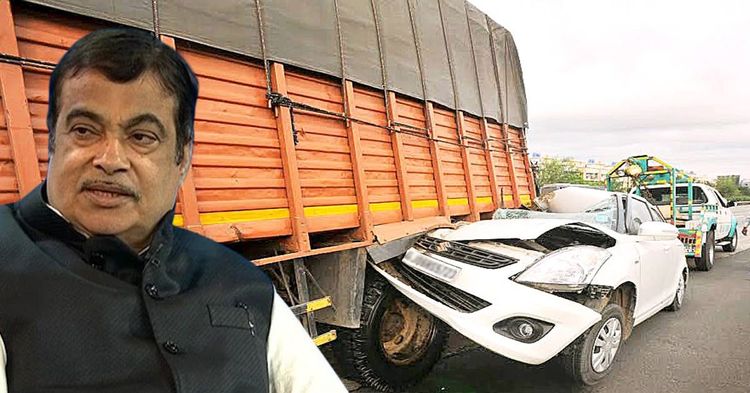₹25,000 Reward For Rushing Accident Victims To Hospital Within 1 Hour: Nitin Gadkari Announces 'Rahveer' Scheme


In a country where one road accident occurs every minute and a life is lost every four, incentivising good samaritans could prove to be a game changer. That seems to be the thinking behind the Centre’s newly announced Rahveer Scheme, which promises a financial reward of ₹25,000 to any individual who helps a road accident victim reach the hospital within the "Golden Hour". The scheme, spearheaded by the Ministry of Road Transport and Highways, aims not just to save lives but to reset public perception and behaviour in emergency scenarios.

Announced by Union Minister Nitin Gadkari, the Rahveer Scheme is expected to roll out nationally with immediate effect. If a person helps an accident victim reach the hospital within 60 minutes of the incident, considered the most critical window to prevent death or permanent disability, they will receive ₹25,000 as a reward.
The process for verification and disbursal is being streamlined to avoid bureaucratic delays or misuse. The government also plans to involve hospitals in tracking and reporting eligible cases, ensuring that the helper's efforts are acknowledged quickly and transparently.

Despite the presence of a Good Samaritan Law in India, which legally protects those who help accident victims from harassment or legal entanglements, public response to road accidents remains worryingly indifferent. Fear of police questioning, court visits, and even false accusations have long discouraged people from stepping forward. In urban areas, bystanders often film or walk past crash victims instead of calling an ambulance or offering aid.
The Rahveer Scheme attempts to tackle this apathy with more than just words. By attaching a financial incentive to an act of humanity, the government hopes to nudge citizens into action. It also sends a broader message that helping someone in need is not just noble but now officially recognised and rewarded.
The concept of the Golden Hour is well known in emergency medicine. In India, however, infrastructure and awareness both fall short. Emergency response vehicles often take far too long to arrive. Even when help is offered, delays in transporting victims to a facility equipped for trauma care can make the difference between life and death.
That’s why the Rahveer Scheme is built on empowering individuals, not institutions. Any private vehicle, cab, auto-rickshaw, or even bike rider who manages to rush a victim to a hospital becomes the hero of the moment. Importantly, this could also push private hospitals and emergency rooms to become more cooperative, as public scrutiny of their role in early care might rise with growing participation in the scheme.
Scepticism is inevitable. Will people misuse the scheme to earn money through false reporting? Will there be genuine support from the police and hospitals, or will red tape undercut the intention? Much depends on how efficiently the government handles verification and rewards disbursement. Transparency will be crucial.
However, the core idea has merit. Countries like the US, Germany, and even Japan have long relied on civilian first responders in emergency care. In those nations, bystander intervention is seen as a civic duty, not an inconvenience. India, for all its progress, has lagged in building this moral culture around accident response. By providing a strong external motivator, the Rahveer Scheme might be able to break that inertia.
If implemented well, the scheme has the potential to become more than just a safety net. It could inspire a cultural shift. Imagine a future where the first instinct of anyone witnessing an accident is not to fear the law or record a video, but to act. For that to happen, awareness campaigns, social media amplification, and real-life success stories must complement the policy.
Road safety in India cannot be improved by infrastructure alone. Behavioural change, fuelled by both compassion and incentive, might just be the missing piece. The Rahveer Scheme recognises that human response is just as critical as medical care when lives are on the line. Whether ₹25,000 becomes a symbolic push or a societal turning point is now up to how the people and the system respond.